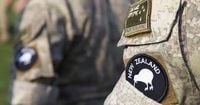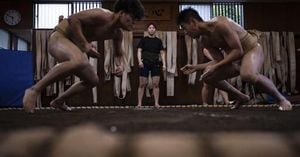In a landmark case for New Zealand’s justice system, a soldier has become the country’s first person convicted and sentenced for espionage, after admitting to attempting to pass sensitive military information to a supposed foreign agent. The conviction, delivered on August 18, 2025, and the subsequent sentencing the following day, have not only highlighted vulnerabilities within the New Zealand Defence Force but also raised questions about the influence of extremist ideologies and the country’s preparedness to handle insider threats.
The soldier, whose identity remains suppressed by court order, was based at Linton Military Camp near Palmerston North. According to 1News and ABC News, the soldier’s actions dated back to late 2019, when he sought to communicate a trove of classified information—including base telephone directories, annotated maps, assessments of security weaknesses, his own military ID card, and login details for restricted networks—to what he believed was a foreign intelligence operative. In reality, the supposed agent was an undercover New Zealand police officer, part of a sting operation launched in the wake of the Christchurch mosque attacks in March 2019.
This unprecedented prosecution stemmed from a broader investigation into right-wing extremist groups following the Christchurch tragedy, which left 51 people dead and shocked the nation. Authorities had been monitoring the soldier after he was flagged for involvement with groups such as the Dominion Movement and Action Zealandia from 2017 to 2019. These organizations, though described by the soldier as “no more than groups of friends with similar points of view to my own,” were already under scrutiny for their nationalist rhetoric and potential links to extremist ideology, as reported by Radio New Zealand.
Military court documents revealed that the soldier’s initial engagement with law enforcement began after he expressed a desire to defect. In November 2019, he met the undercover officer, offering a handwritten letter outlining his willingness to supply classified materials, as well as a black bag containing military documents, including a weapons handbook. By December, he had handed over a red folder with telephone directories from several military camps—Linton, Burnham, Trentham, the Defence College, and Messines—along with maps, photographs, and documents detailing security vulnerabilities. He also attempted to provide his own ID card, access codes, and passwords, which would have allowed unauthorized access to restricted Defence Force systems and even air bases such as Ohakea.
Investigators searching the soldier’s hard drive discovered a copy of the Christchurch shooter’s livestreamed video and manifesto—both banned materials in New Zealand due to their connection to the 2019 terrorist attack. Possession of such objectionable publications is a criminal offense, and the soldier admitted to this charge as well, joining a small group of individuals previously prosecuted for similar offenses.
At the start of his court martial at Linton Military Camp, the soldier pleaded guilty to three charges: attempted espionage, dishonest access of a computer system, and possession of objectionable material. These admissions replaced an initial suite of 17 charges, which included four counts of espionage. As The Associated Press detailed, each of the three charges carries a maximum prison term of seven to ten years, with espionage offenses under New Zealand law punishable by up to 14 years in a military prison.
Sentencing deliberations began at 1 p.m. on August 19, 2025, overseen by Chief Judge Kevin Riordan and a panel of three senior military officers. Judge Riordan did not mince words in his summing up, describing the soldier’s plot as far from sophisticated. “This was not a sophisticated espionage plot,” Riordan remarked, as reported by 1News. “Indeed, the court wonders how you could've been so naive.” Yet he was quick to underscore the gravity of the offense: “There is no such thing as a non-serious act of espionage. There is no trivial act of espionage.” The judge emphasized that any act endangering New Zealand’s national security and military integrity must be treated with utmost seriousness, both as punishment and as a deterrent to others.
The soldier was ultimately sentenced to two years in military detention and dismissed from the army. He will serve his time at Burnham Military Camp, south of Christchurch. While the sentence may seem lenient given the potential maximum penalties, the judge noted the soldier’s apparent lack of sophistication and the fact that, due to the vigilance of New Zealand’s security agencies, no actual foreign power received the sensitive information.
During sentencing, an affidavit from the soldier was read aloud, in which he expressed some regret for his actions. “I fully understand why my former colleagues might think badly of me,” the judge quoted, acknowledging this as “a step in the right direction.” However, Riordan also critiqued the sincerity of the remorse, suggesting it was tinged with self-interest: “There is still a flavour in it that you are sorry that you carried out your activities because of all the trouble it has brought to you. Rather than being sorry for the trouble it has brought everybody else.” In another section, the soldier claimed to “love his country,” a sentiment the judge challenged: “A person who loves their country does not provide material to its detriment to a foreign country.” Instead, Riordan concluded, the soldier “loved a version of the country in his mind.”
Chief of Army Major General Rose King also weighed in, condemning the actions as “deplorable.” In a statement issued after sentencing, King said, “They were incredibly poorly judged and brought risk to all of those he served alongside, as well as the wider New Zealand public, and struck to the very core of what we as a Defence Force have a sworn duty to protect.” King praised the efforts of security agencies, noting, “Through incredible efforts and work across our security agencies, including the New Zealand Police and intelligence community, the true cost of these crimes was not realised, and I am both grateful and incredibly proud of the authorities’ work to ensure that was the case.”
The prosecution, King added, “is a clear signal to not only anyone considering similar actions, but also to the New Zealand public whose trust in us is vital. There will be zero tolerance of these behaviours and actions.”
The case’s national significance was underscored by the extraordinary security measures and secrecy surrounding the proceedings, with some hearings held behind closed doors and the name of the foreign country involved still suppressed. Pre-trial hearings were delayed for months due to the challenges of handling classified information, reflecting the delicate balance between transparency and national security.
While the soldier claimed in court that the groups he was involved with were not terrorist organizations and that he did not support the Christchurch attack, the presence of banned extremist material on his devices and his willingness to pass on classified information have left many in New Zealand’s defense and intelligence communities on high alert. The case serves as a sobering reminder of the evolving nature of insider threats and the ongoing need for vigilance, even in nations long considered safe from the specter of espionage.
As New Zealand closes the chapter on its first military espionage conviction, the ripple effects—both within the Defence Force and the wider public—will likely be felt for years to come.






